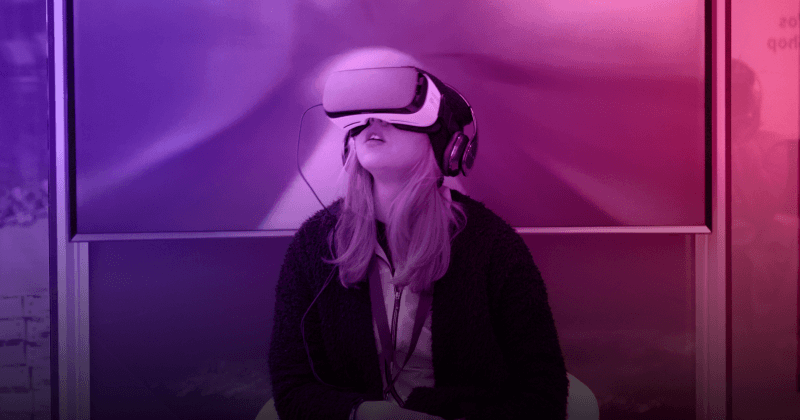Virtual Reality (VR) may be the future technology that might rule the globe
Virtual Reality (VR) May Be The Future Technology That Could Rule The Globe
In the landscape of emerging technologies, one innovation stands out with the potential to fundamentally reshape our world: Virtual Reality (VR). What began as a niche gaming technology has evolved into a platform with the capacity to transform every aspect of human life. Many experts now believe VR may be the future technology with the scalability and versatility to truly rule the globe—not through domination, but through integration into every facet of society.
From Entertainment to Essential Infrastructure
The Evolution Beyond Gaming
While gaming provided the initial commercial push for VR, the technology’s potential extends far beyond entertainment:
-
Education Revolution: Immersive historical recreations, virtual science labs, and global classroom connections
-
Healthcare Transformation: Surgical training simulations, phobia treatment through exposure therapy, and remote patient consultations
-
Business Innovation: Virtual offices, 3D product prototyping, and global collaboration spaces
The Global Connectivity Factor
VR uniquely bridges physical distances, creating a borderless digital world where:
-
International teams collaborate in shared virtual spaces as if they were in the same room
-
Cultural and educational exchanges happen with unprecedented immediacy and depth
-
Global events become accessible to anyone with a headset, regardless of physical location
Industries Already Being Transformed
Healthcare and Medicine
-
Surgical Training: Medical students practice complex procedures in risk-free virtual environments
-
Therapeutic Applications: PTSD treatment, pain management, and physical rehabilitation
-
Mental Health: Controlled environments for anxiety treatment and mindfulness practices
Education and Training
-
Immersive Learning: Students explore ancient civilizations or molecular structures firsthand
-
Skill Development: Hands-on training for dangerous professions without real-world risk
-
Global Classrooms: Breaking down geographical barriers to quality education
Commerce and Retail
-
Virtual Storefronts: Customers “try” products before purchasing
-
Real Estate: Property tours from anywhere in the world
-
Architecture: Clients experience building designs before construction begins
The Social Impact: Redefining Human Connection
The Metaverse Vision
The concept of a persistent, shared virtual space—the metaverse—represents perhaps the most ambitious application of VR technology:
-
New Social Platforms: Beyond text and video to fully embodied digital interaction
-
Digital Economies: Virtual goods, services, and experiences creating new marketplaces
-
Cultural Spaces: Art galleries, concerts, and theaters accessible globally
Changing How We Work
The post-pandemic shift toward remote work finds its logical conclusion in VR workspaces:
-
Virtual Offices: Recreating the social and collaborative benefits of physical offices
-
Enhanced Collaboration: 3D data visualization and interactive design sessions
-
Reduced Carbon Footprint: Less business travel through effective virtual presence
The Technology Driving Global VR Adoption
Hardware Innovations
-
Standalone Headsets: Eliminating the need for powerful external computers
-
Haptic Technology: Adding physical feedback to virtual experiences
-
Eye-tracking: Enabling more natural interaction and performance optimization
Software and Content Development
-
Cross-platform Standards: Ensuring interoperability between different VR systems
-
User-generated Content: Empowering creators to build virtual experiences
-
AI Integration: Creating responsive, intelligent virtual environments
Challenges on the Path to Global Dominance
Technical Hurdles
-
Accessibility: Reducing cost and complexity for mass adoption
-
Comfort: Improving ergonomics for extended use
-
Visual Fidelity: Achieving photorealistic graphics in real-time
Social and Ethical Considerations
-
Privacy: Managing personal data in immersive environments
-
Digital Divide: Ensuring equitable access across socioeconomic groups
-
Psychological Impact: Understanding effects of prolonged virtual existence
The Global Economic Implications
Market Growth Projections
The VR market demonstrates explosive growth potential:
-
Current valuation: $22 billion (2023)
-
Projected valuation: $70 billion by 2030
-
Compound annual growth rate: 18%+
Job Creation and Industry Shifts
-
New Professions: VR content creation, virtual space design, and metaverse management
-
Transformed Industries: From tourism to manufacturing adopting VR solutions
-
Global Workforce: Truly borderless collaboration and employment opportunities
Why VR Could Rule the Globe
The Convergence Factor
VR stands at the intersection of multiple transformative technologies:
-
Artificial Intelligence: Creating intelligent virtual environments and characters
-
5G/6G Networks: Enabling low-latency, high-bandwidth experiences
-
Blockchain: Securing digital assets and identities in virtual spaces
The Human Element
Unlike any technology before it, VR engages our fundamental human capabilities:
-
Spatial Awareness: Leveraging our innate understanding of 3D space
-
Embodied Cognition: The profound psychological impact of “presence” in virtual spaces
-
Social Connection: Fulfilling our deep-seated need for community and interaction
The Future Landscape: A VR-First World
Short-term Developments (1-3 years)
-
Mainstream adoption in education and corporate training
-
Medical applications becoming standard practice
-
Social VR platforms reaching critical mass
Long-term Vision (5-10 years)
-
Virtual-first work environments for many knowledge workers
-
Digital twins of physical spaces for planning and management
-
Mixed reality blending physical and digital worlds seamlessly
Preparing for a VR-Dominant Future
For Individuals
-
Developing digital literacy around immersive technologies
-
Understanding privacy implications in virtual spaces
-
Building skills for creating and navigating virtual environments
For Businesses
-
Exploring VR applications in core operations
-
Training teams for virtual collaboration
-
Planning for shifts in customer interaction patterns
For Society
-
Establishing ethical frameworks for virtual spaces
-
Ensuring equitable access to emerging technologies
-
Preserving human connection amid digital immersion
The Inevitable Virtual Horizon
The evidence increasingly suggests that Virtual Reality (VR) may be the future technology that could rule the globe. Not through replacement of physical reality, but through augmentation and enhancement of human capability and connection. As the technology matures and becomes more accessible, we stand at the threshold of a new era—one where our digital and physical lives merge into a seamless continuum.
The question is no longer if VR will become a dominant global technology, but how we will shape this powerful tool to create a better, more connected, and more human future.
